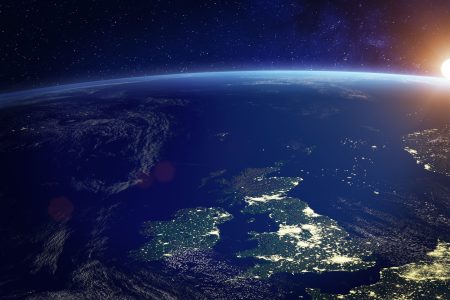An international collaboration which explores how AI can be used to improve space sustainability, safety, and operations has received £1.5 million in funding from the UK Space Agency.
The University of Strathclyde’s Aerospace Centre for Excellence is leading the project, with involvement from Massachusetts Institute of Technology (MIT), The Alan Turing Institute, the University of Arizona, the University of Waterloo in Canada, and commercial space companies LMO, GMV, Nominal Systems, and Columbiad.
The “AI4 Space Safety and Sustainability” project looks to accelerate the readiness of AI technology applied to space sustainability and safety. One of the biggest challenges facing the sector is congestion created by space debris — defunct man-made objects floating in space which no longer serve a useful function.
According to the UK Space Agency, millions of defunct man-made objects are orbiting the planet, with almost 37,000 measuring larger than 10cm, and an estimated 130 million measuring less than one cm. The objects range from defunct satellites to smaller items such as discarded astronaut’s toothbrushes, and even flecks of paint.
One of the key aims of the new project will be to use machine learning, a form of AI, to help predict the motion of space objects, reducing the risk of collisions and improving space flight safety.
Professor Massimiliano Vasile, director of the Aerospace Centre of Excellence at Strathclyde and lead on the project, said: “The sustainability of the use of space is essential to enable any future space activity.
“The sector is based on a model that isn’t sustainable because we keep on launching materials into space – meaning there is a constant drain we take from Earth. Eventually nothing will be able to use space and it will be so crowded you can’t launch anything.”
Professor Vasile explained that the collaboration will demonstrate different uses of AI, including the behavioural analysis of space objects — understanding what we are looking at when we observe the sky, what the object is, and what it’s doing.
“AI is good at understanding patterns and classifying what you’re observing,” he added. “We want to increase automation to help avoid collisions – a little bit like self-driving cars.
“We also want to use AI to determine the impact on the space environment to allow for informed decisions. When countries decide on policies to licence new missions they need to understand the global impact of that mission on the space environment – insurance companies also need to understand the global impact to quantify how risky it is.
“Our project will demonstrate how we can work together with other countries across borders.”
Speaking on providing the project with funding, Anu Ojha, the UK Space Agency’s director of championing space, commented: “Our International Bilateral Fund bolsters international collaboration that harnesses the UK’s national expertise, supports new space capabilities and catalyses investment.
“Supporting innovative projects on new technology like AI is an opportunity to showcase the UK as a spacefaring nation, whilst enhancing the wider UK space sector, creating jobs and generating further investment.”
Source: DIGIT

